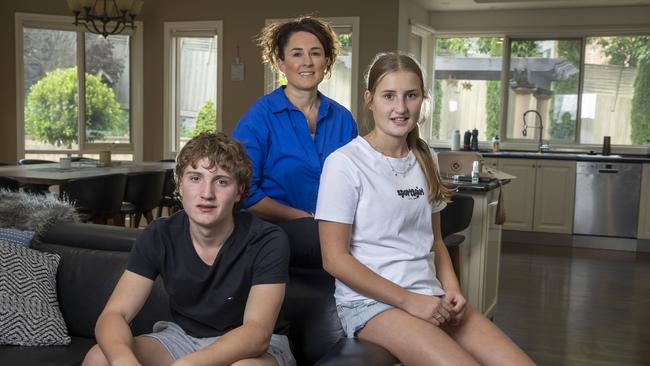New peanut allergy treatment and vaccine that could help Australians
A new treatment is being trialled in children with peanut allergies that could retrain their bodies so they don’t react to the food. Find out if you’re eligible for the trial.
National
Don't miss out on the headlines from National. Followed categories will be added to My News.
EXCLUSIVE
People with peanut allergies could soon have their bodies retrained to tolerate the food using a breakthrough Australian immunotherapy treatment.
Trials of the potentially lifesaving drug – which is a cross between a treatment and a vaccine – began in Melbourne this week and will roll out around the country in the following months.
The Murdoch Children’s Research Institute (MCRI) will conduct the trial in children aged 4-17, in the hope it could spell the end of anaphylactic reactions in the three in every 100 children with the allergy.
Population Allergy Group Leader at the Murdoch Children’s Research Institute Associate Professor Kirsten Perrett is leading the clinical trial of the new treatment and said the aim of the study was to provide lifelong tolerance to peanuts.
“It’s huge. I’m very excited this could be a real game changer for people living with peanut allergy that we have a potential treatment that may actually lead to long term tolerance to peanuts,” Assoc Prof Perrett said.

The treatment being developed by Australian company Aravax grew out of research at Alfred Health and Monash University and has already passed a human safety trial in 15 adults.
When the adults in the safety trial were followed up a year later their blood samples showed changes in their immune response to peanuts and they had a reduced reaction to peanuts after a skin prick challenge, Aravax CEO Dr Pascal Hickey said.
In the new trial 90 children will be given an injection of a small part of a peanut protein called a peptide once a month for 12 months.
The injection will be delivered using a painless plastic device with three tiny needle heads that deposit the treatment into the very top layer of the skin where there is a high concentration of immune cells.
“It takes away a lot of the concerns around needle phobia which are particularly an issue with children,” Dr Hickey said.
The immunotherapy works by exposing the body to tiny parts of the peanut in a way that does not prompt a reaction that results in hives, vomiting or deadly anaphylaxis involving swelling of the tongue, breathing difficulty and collapse.
The body has immune cells called T cells and in people with allergies these malfunction and prime other immune cells to see peanut proteins as toxic and produce an acute allergic reaction.
However, these other immune cells can only see the larger three dimensional shape of the peanut protein and do not react to the tiny peptides in the Aravax therapy, Dr Hickey said.
“We want to retrain those T cells, so that they don’t think peanut is toxic. They just accept peanut as just another protein,” he said.
It is yet to be proven but it is hoped a course of the treatment might produce a lifelong end to the allergy, alternatively, as with the Covid vaccine, people with the allergy might need a regular annual top up treatment to keep the allergy under control.

Kirsten Deckert’s face used to swell up when she was exposed to peanuts as a child and both her children Lachlan aged 15 and Chelsea aged 13 have a peanut allergy.
“It’s hard. You’ve got to really watch what they eat, especially when you’re going out, whenever they leave the house you’ve got to carry EpiPens and antihistamines,” the Melbourne nurse who works on clinical trials and in an Asthma and Allergy clinic said.
“It would be amazing if this comes to fruition and even if my kids weren’t interested in eating peanuts, it alleviates the worry if they accidentally came across them in cross contamination,” she said.
Families interested in taking part in the clinical trial can find information on the MCRI and Aravax websites.
Meanwhile the MCRI experts – including Assoc Prof Perrett – are about to launch another project offering relief to families impacted by food allergies of all kinds.
Working with the recipe team at Taste (owned by News Corp, publisher of this masthead) they have developed The Allergy Friendly Family Cookbook, full of advice and meals catering to different dietary needs.
The Allergy Friendly Family Cookbook is published by HarperCollins on March 22 and is available to pre-order now at Amazon.





